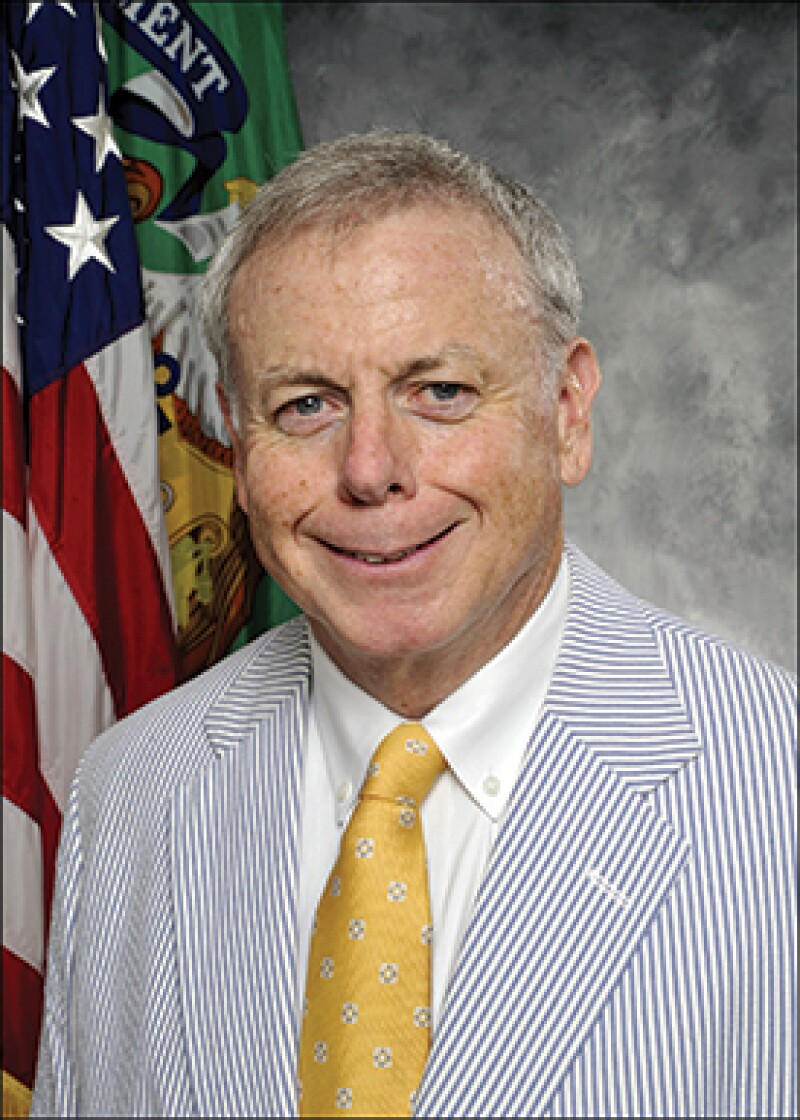
|
Robert Stack's influence in international tax affairs has ensured his spot in the Global Tax 50 for a third year running. For the US, this year has been rife with international tax matters – most notably when the US said that the European Commission was unfairly targeting American companies such as Apple, Amazon, Starbucks and McDonalds through state aid investigations.
The growing US-EU tension has meant that Stack has been busy. However, Stack will not be continuing in his position at the Treasury for much longer. In a phone interview, Stack told International Tax Review that he would be stepping down from his role to pursue new opportunities. Here, he talks about the BEPS Project, country-by-country reporting (CbCR), state aid, the election and international tax reform.
International Tax Review: 2016 has been a busy year for international taxation. What have been some key themes on your agenda throughout the year?
Robert Stack: I think one of the first important things was the implementation of the BEPS Project. The US is very proud to have met all the minimum standards proposed as part of BEPS. We have implemented country–by-country reporting in a timely manner; our treaties already include the strongest anti-treating shopping provisions in the world; we lead in satisfying the mutual agreement procedure standard; the US has no harmful practices and has agreed to automatically exchange rulings that affect cross-border taxation.
ITR: Regarding CbCR, the US's implementation of it has been an important step in tax transparency efforts. What is your deposition on public CbCR?
RS: The Treasury department was most disappointed when the European Union (EU) member states agreed in the BEPS Project to country-by-country reporting among tax authorities and then proposed to make it public. The ink wasn't dry on the BEPS recommendations before certain elements at the EU proposed walking away from the multilateral agreement to suggest that this should be done on a public basis. We are concerned about the degree to which EU member states are actually committed to multilateral processes in the international tax space; actions like this raise serious doubts as to whether they are.
ITR: You once said that a major driver of the BEPS Project is to attack US multinationals. Revisiting this, has your opinion changed?
RS: There was always a concern that in working on the BEPS Project we protect the US tax base and that US companies not be disproportionately targeted and affected by BEPS. That being said, there were lots of good elements in the BEPS Project that are going to help the world. While I thought it was important for us to aggressively protect the US tax base. I think we were able to constructively lead to solutions that will improve international taxation - and we did that on a multilateral basis.
ITR: Just revisiting the state aid topic, can you tell us a bit about what the US is doing in light of these developments?
RS: We are very proud of our work in pointing out the inconsistencies taken by the European Commission (EC) with respect to the state aid decisions and the degree to which they are a dangerous precedent for the multilateral development of international tax policy. We issued a White Paper in August and the Secretary has continued to state that the EU is retroactively applying a sweeping new state aid theory that is contrary to well established legal principles, calls into question the tax rules of individual countries and threatens to undermine the overall business climate in Europe.
ITR: Let's talk about the US election. What are the most prominent tax implications of a Donald Trump presidency? What changes can businesses expect?
RS: President Obama proposed a business tax reform plan in 2012, which was recently updated in April; the President-Elect has a different approach; the Senate Finance Committee has suggested an approach; and the House Ways and Means Committee in June put out a Blueprint outlining its approach. Each is different from the other. I think it will be up to the next administration and the next Congress to sort through the differences.
ITR: Is it fair to say then that there will most likely be a major tax reform in the New Year?
RS: There's a strong desire within the United States to move forward on business tax reform, which this administration has made substantial progress on.
ITR: What do you think still needs to change in relation to US tax reform and international tax reform?
RS: I think that, and this is something I think we missed in the BEPS Project, there needs to be stronger controlled foreign corporations (CFC) rules. The reason that these are important is because the international system needs a greater degree of stability so that companies can work with the certainty of what their tax rates will be around the world. I think a question that will linger in the international tax community on into the future is: are we building a stable system or are we just fostering tax competition among residence countries, which has deep stabilising affects throughout the rest of the international tax system?
ITR: What work in international taxation would you say are you most proud of?
RS: The United States is proud of the fact that we took a leadership role in the OECD's BEPS Project. I think we have one of the best technical tax teams in the world and I think we apply that skill and knowledge to international taxation, we left our imprint on virtually every action item in a way that improved the quality of the work and we are very proud of that.
The Global Tax 50 2016 |
|
|---|---|
The top 10 • Ranked in order of influence |
|
2. The International Consortium of Investigative Journalists |
|
3. Brexit |
4. Arun Jaitley |
5. Jacob Lew |
|
10. Donald Trump |
|
The remaining 40 • In alphabetic order |
|









